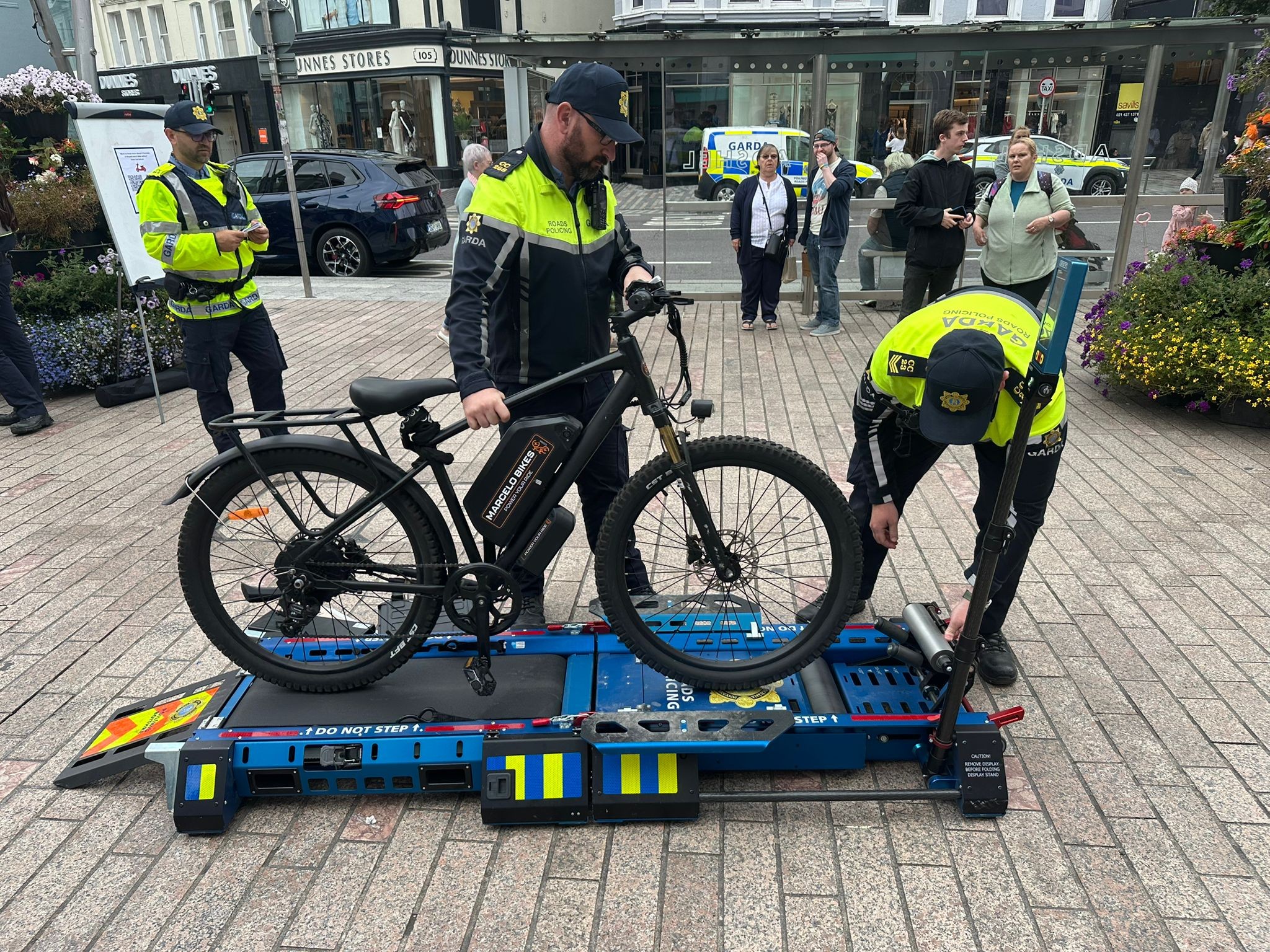Gardaí Deploy Speed Testing Equipment for E-Scooters in Cork City Centre
Gardaí test e-scooters in Cork city, finding many riders unaware of 20km/h speed limit despite law being in effect since May 2024.

- Cork city centre became the testing ground for new enforcement measures today as An Garda Síochána rolled out specialised equipment to check whether e-scooters, e-bikes and e-mopeds comply with legal requirements, with officers revealing many users remain unaware of the 20km/h speed limit.
The dynamometer, a device that measures speed and weight capabilities, made its debut appearance on Cork's streets as Gardaí conducted their first comprehensive testing operation targeting electric personal transport devices. Officers stationed in the city centre checked vehicles against regulations that have been in force since May 2024.
A key concern emerging from today's operation was the widespread lack of awareness about speed restrictions. Gardaí reported that many e-scooter owners they encountered were still unaware that their devices must not exceed 20km/h when used on public roads, despite the legislation being in place for over a year.
The testing comes as e-scooters have become an increasingly common sight on Cork's streets, particularly among students and commuters looking to avoid traffic congestion. However, the popularity of these devices has raised safety concerns, with some models capable of speeds well above the legal limit.
Under current regulations, e-scooter users must be at least 16 years old and can only ride in cycle lanes, bus lanes, or on roads. Footpaths, pedestrianised areas like Patrick Street's main shopping district, and motorways remain strictly off-limits. The devices must be equipped with lights, reflectors, brakes, and either a bell or audible warning device.
Perhaps surprisingly for many riders, e-scooters are prohibited from having seats and cannot be used to carry passengers or goods. Users are also banned from using mobile phones while riding, with Gardaí emphasising that the same rules of the road that apply to cyclists also apply to e-scooter users.
The technical specifications are equally strict. Legal e-scooters must have a maximum continuous rated output of 400 watts, weigh no more than 25kg including batteries, and maintain speeds at or below 20km/h. Devices exceeding these specifications are classified as high-power models and are not legal for use on public roads.
For Cork motorists sharing increasingly busy roads with e-scooters, Gardaí reminded drivers to maintain safe passing distances: one metre when overtaking in 50km/h zones or under, and 1.5 metres in higher speed zones.
The enforcement action reflects growing concerns about non-compliant devices being sold online and in some retail outlets. Gardaí stressed that while legal e-scooters don't require registration, motor tax, insurance, or a driving licence, improper or dangerous use will likely result in fines and the device being seized.
The Road Safety Authority has published comprehensive guidelines on their website, urging potential buyers to ensure any e-scooter they purchase carries proper CE marking and comes with a Declaration of Conformity from the manufacturer.
Today's testing operation marks a significant step in enforcing e-scooter regulations in Cork, with Gardaí indicating that similar checks may become more frequent as they work to ensure all users understand and comply with the law.

